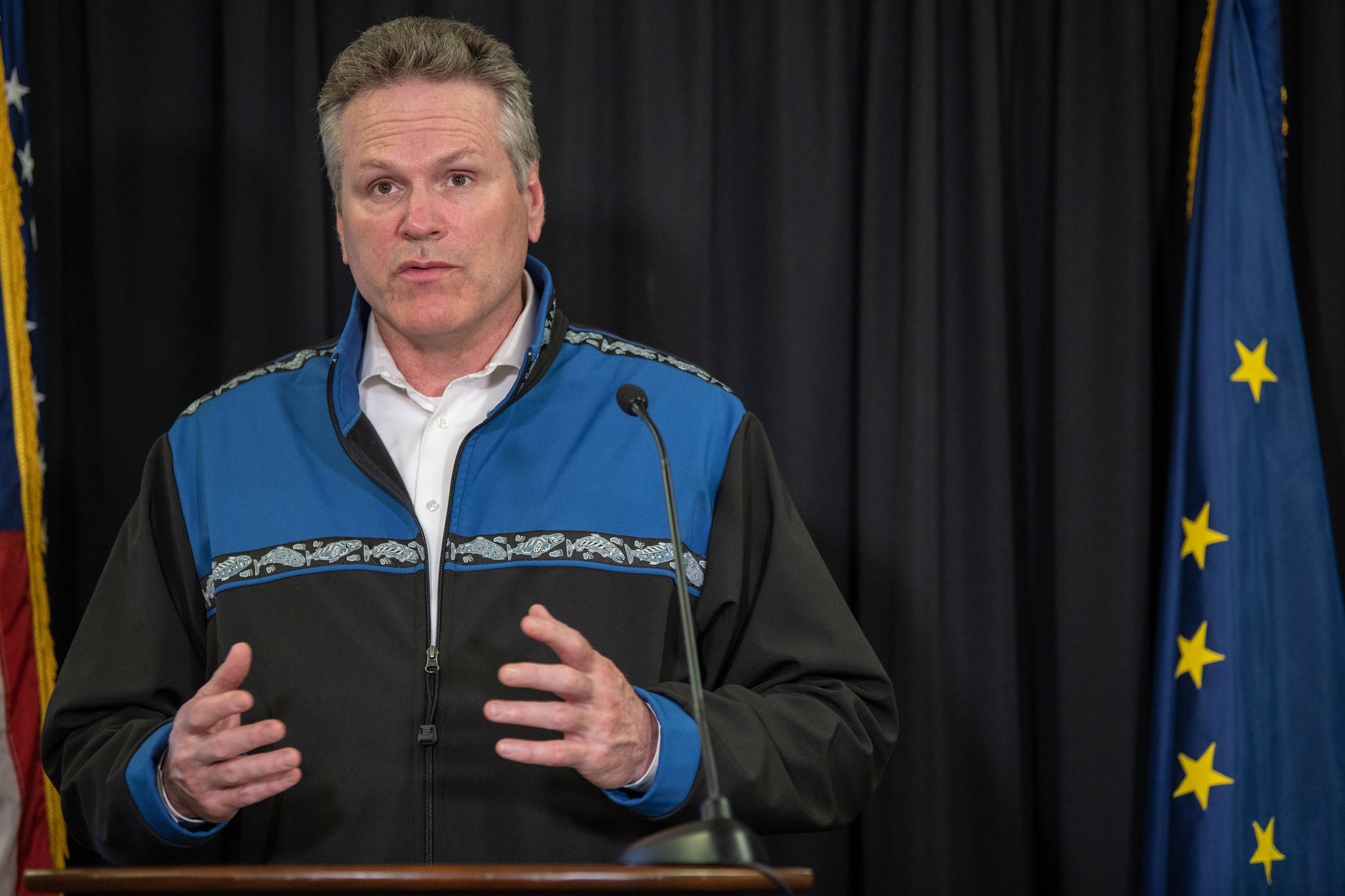The state’s health care capacity remains robust enough to handle the rising number of confirmed COVID-19 cases Gov. Mike Dunleavy said Wednesday at a press conference in Anchorage.
The state has released daily reports with case counts in the double digits several times in the past few days beginning with a May 31, announcement of a spike of 27 cases, the state’s highest single-day increase of the pandemic.
But Dunleavy maintained cases are being traced and steps are being taken to treat patients.
“There’s no playbook on a pandemic,” Dunleavy said. “What we feel pretty good about is our capacity.”
The cases reported by the state were located in clusters, Chief Medical Officer Dr. Anne Zink said at the press conference, and there didn’t seem to be any community transmission.
Asked about a letter signed by more than 160 doctors in the state calling for a mandate requiring cloth face coverings in public, the governor said he was not planning any additional orders at this time.
“We know there are businesses that require (face coverings), that’s their choice. There are Alaskans who will wear them, that’s their choice,” Dunleavy said.
The best results came from providing people with information, Dunleavy said, and relying on them to use their best judgment.
In social media posts Wednesday, Zink explained humility, kindness and community are why she chooses to wear a face covering.
Information regarding the virus has changed over time, Dunleavy said, pointing to past declarations from the Centers from Disease Control and Prevention about the effectiveness of face coverings.
“There’s going to be a whole industry that pops up post pandemic about coulda, woulda, shoulda,” Dunleavy said, and that he has seen conflicting information coming from news agencies.
Current travel regulations require those coming from outside Alaska to either show negative test results, submit to a test at the airport on arrival or go through a 14-day quarantine. But even if a test shows negative, that’s only for that moment in time, the governor said.
“I don’t want folks to misconstrue what testing does,” he said. “It tests you at that moment in time, they could test negative and then an hour later be exposed to the virus, there’s really nothing fool-proof at this point.”
Even with negative results, health guidelines and precautions should still be taken, Zink said.
“A negative test means that they don’t have the test at that time that doesn’t mean they don’t need to take those precautions,” she said. “The more we spend time close together the higher risk we are.”
• Contact reporter Peter Segall at psegall@juneauempire.com. Follow him on Twitter at @SegallJnoEmpire.

